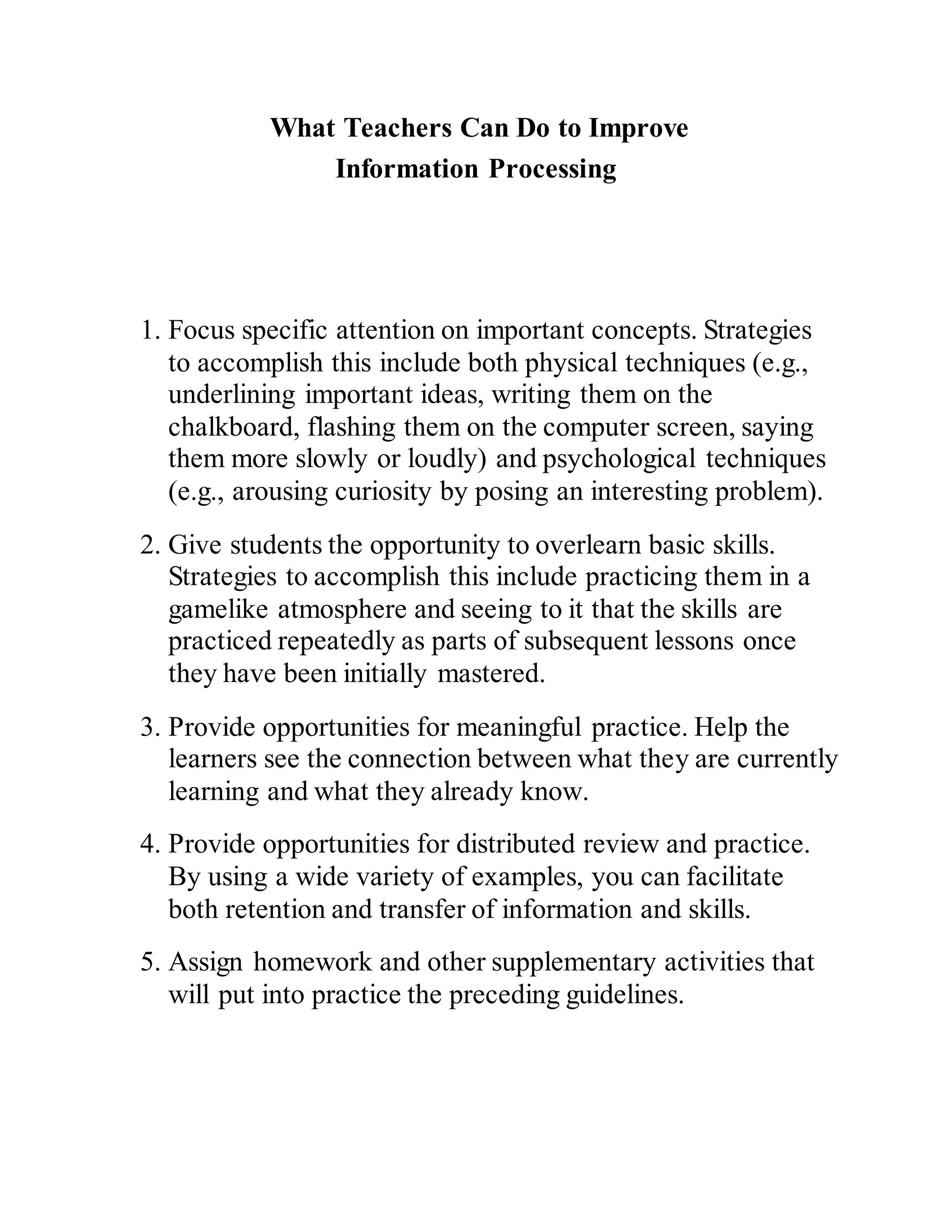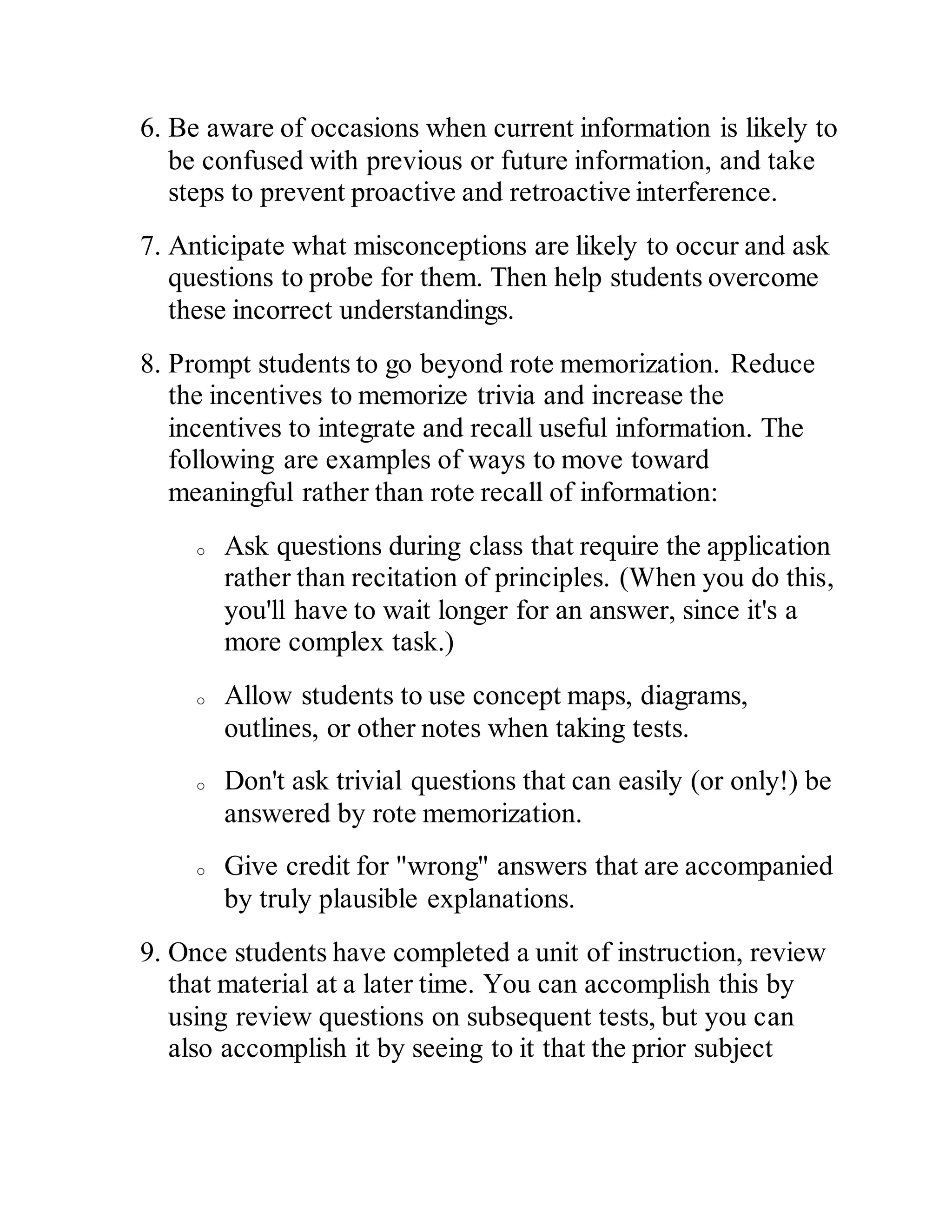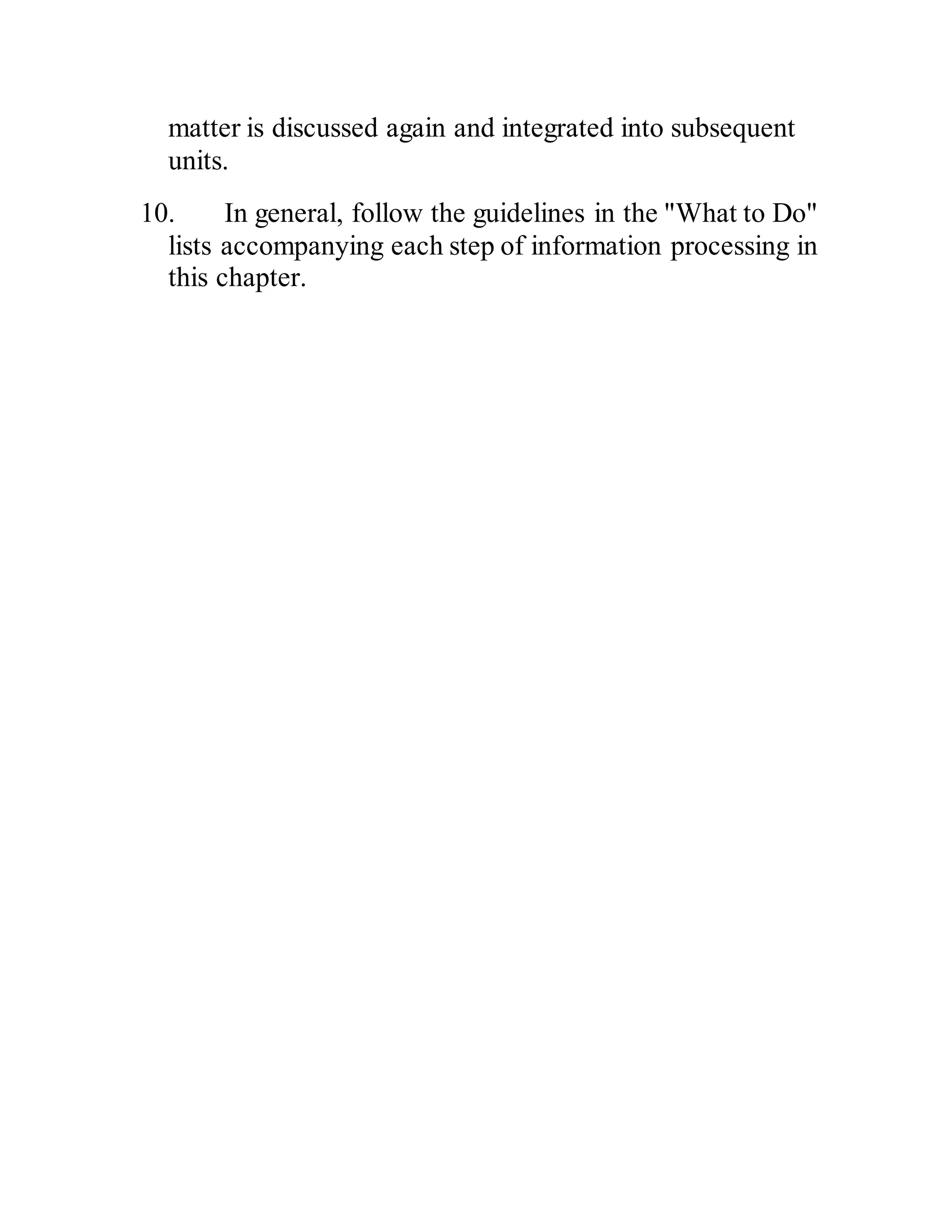Teachers can improve student information processing in several ways:
1. Focus on important concepts using physical techniques like underlining or saying ideas slowly, and psychological techniques like posing interesting problems.
2. Give students opportunities to overlearn basic skills through practice in a game-like atmosphere and repeated skills practice in lessons.
3. Provide meaningful practice to help students see connections between new and existing knowledge.
4. Provide distributed review and practice using a variety of examples to aid retention and transfer of information.


